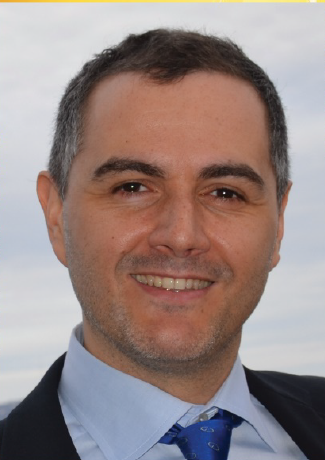Multi-Scale Process TCAD at the Institute for Microelectronics, TU Wien
Multi-Scale Process TCAD
Date and Time
Location
Hosts
Registration
-
 Add Event to Calendar
Add Event to Calendar
Loading virtual attendance info...
- Ann Arbor, Michigan
- United States 48109
- Room Number: Room 1018 Dow
Speakers
Prof. Lado Filipovic of TU Wien, Christian Doppler Laboratory for Multi-Scale Process Modeling of Semiconductor Devices and Sensors.
Multi-Scale Process TCAD at the Institute for Microelectronics, TU Wien
The microelectronics industry has undergone significant innovation in recent years. The decades-long technology roadmap involving planar transistor scaling has evolved into a search for optimal geometries and materials beyond silicon. Circuit designers and fabrication engineers can no longer enjoy the benefits of decades of experimental data solely on silicon. Technology computer aided design (TCAD) and design-technology co-optimization (DTCO) strategies need to adapt to include the search for novel materials through a multi-scale modeling approach, where the atomistic behavior of a material informs design decisions. With continued reduction of design margins, process variability is becoming a significant concern. Understanding equipment-level and across-wafer variation is paramount. However, current physical deposition and etching models do not provide a direct link to equipment inputs. This talk will discuss the state of process simulation and emulation, and what we are developing to assist the microelectronics industry, including both semiconductor manufacturers and electronic design automation (EDA) vendors. Including TCAD and DTCO during the design process has become invaluable. I will discuss how machine learning is helping merge feature-scale modeling with reactor-level inputs and equipment variability. Ultimately, we are aiming towards a digital DTCO strategy for design discovery while reducing cost, time, and environmental impact of the design cycle by reducing the reliance on experimental process development.
Biography:
Lado Filipovic is an Associate Professor of Micro- and Nanoelectronics at TU Wien and the director of the Christian Doppler Laboratory for Multi-Scale Process Modeling of Semiconductor Devices and Sensors. He obtained his venia docendi (habilitation) in Semiconductor Based Integrated Sensors and his doctoral degree (Dr.techn.) in Microelectronics from TU Wien in 2020 and 2012. He is a Principal Investigator in research projects related to both basic science and industry-relevant research. His primary research interests are the fabrication, operation, stability, and reliability of novel semiconductor devices and sensors, using advanced process and device modeling; and the multi-scale modeling of processes involved in the fabrication of semiconductor devices and sensors. This involves combining atomistic modeling with Monte Carlo and contin-uum approaches, as well as merging physical models with empirical geometric descriptors in a single framework, specifically for process TCAD. His team has released several open-source software tools to model semi-conductor device fabrication (ViennaPS - https://github.com/ViennaTools/ViennaPS ) and operation (Vien-naEMC - https://github.com/ViennaTools/ViennaEMC ). He is currently also investigating efficient integration of machine learning with process TCAD to merge ab-initio with molecular dynamics, to aid in material and design discovery, and to combine feature-scale and reactor-scale models.
An IEEE Southeastern Michigan Section event. All are welcome. Consider becoming an IEEE member if such similar events are of professional/academic interest to you


